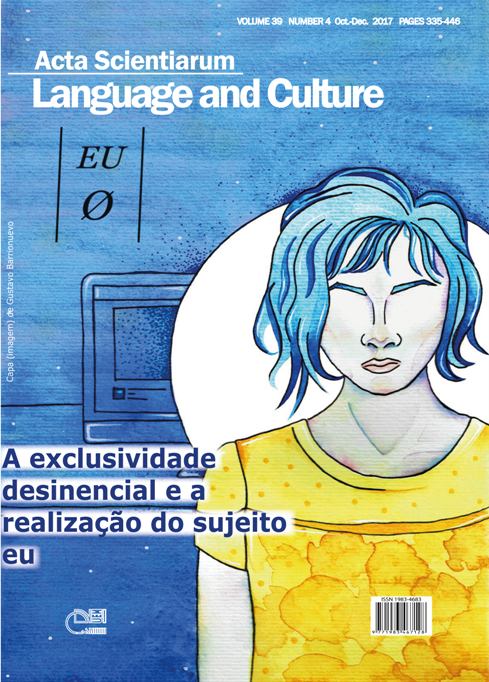<b>Identification of the most common phraseological units in the English language in academic texts: contributions coming from corpora
Resumen
Academic-scientific phraseological units in the English language play a key role in the communication of/to experts, once they reproduce frequent and expected expressions in varied disciplines. This paper aims at identifying and analyzing the 100 non-specialized academic-scientific phraseological units (constituted of 4 words) in the English language, present in eight major fields of knowledge. The theoretical background referred to Phraseology and Corpus Linguistics. Regarding methodology, an academic corpus was compiled with more than 120 million words. The software WordSmith Tools was used for the linguistic-textual process. Through the Juilland dispersion coefficient and use coefficient, the most frequent phraseological units were identified in the academic texts. The list was eventually validated by the Wilcoxon rank sum test (α = 0.05), indicating that the phraseological units identified show a higher use in the academic communication when compared to the use in the general language. The most relevant units are ‘the case of’, ‘as a result of’ and ‘at the end of’. The list with the most functional phraseological units in the English language might provide a valuable pedagogical linguistic reference for the study of the academic genre.
Descargas
DECLARAÇÃO DE ORIGINALIDADE E DIREITOS AUTORAIS
Declaro que o presente artigo é original, não tendo sido submetido à publicação em qualquer outro periódico nacional ou internacional, quer seja em parte ou em sua totalidade.
Os direitos autorais pertencem exclusivamente aos autores. Os direitos de licenciamento utilizados pelo periódico é a licença Creative Commons Attribution 4.0 (CC BY 4.0): são permitidos o acompartilhamento (cópia e distribuição do material em qualqer meio ou formato) e adaptação (remix, transformação e criação de material a partir do conteúdo assim licenciado para quaisquer fins, inclusive comerciais.
Recomenda-se a leitura desse link para maiores informações sobre o tema: fornecimento de créditos e referências de forma correta, entre outros detalhes cruciais para uso adequado do material licenciado.




















6.png)









